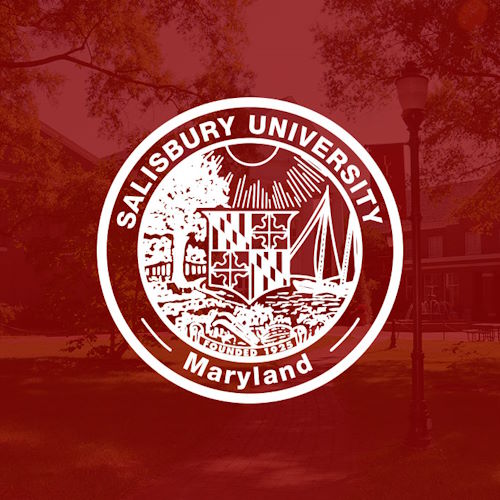


Louise Anderson
Education
- Temple University, PhD, Music Education, 2013
- Pennsylvania State University, MA, Humanities, 2005
- Millersville University, BS, Music Education, 1984
Areas of Expertise
- Music Education PK-12
- Curriculum Development
- Education Administration and Leadership
Research Interests
My research interests include: Community music, general music pedagogy, choral pedagogy, ukulele instruction in the music classroom and within the community setting, and the semiotics of music.
-
Teaching Philosophy
Teaching is an art and a science which combine to form my role as a facilitator to assist and guide students as they travel along individual paths towards their goals. To be an effective facilitator I strive to be an expert in my content area and pedagogy, a role model as an educational leader and teacher, a life-long learner, and one truly vested in the success of my students.
-
Selected Publications
Anderson, Louise L. and Wagner, Diana Mae (2024) “The Delmarva Peninsula in Song: Musical Works of Peter Dale Wimbrow, ‘Delmarva’s Songster’. Maryland Historical Magazine.
Anderson, Louise L. (2023) Connecting the Dots Through Arts-Infused Activities. No. vol. 36. no. 3. pp. 26-37. Journal of General Music Education.
Web Address
Anderson, Louise L. (2020) A Reflective Supervision Strategy. vol. Fall 2020. no. Vol. 67/No. 1. pp. p. 20-21. Maryland Music Educator.
Web Address
Anderson, Louise L. (2020) Trauma-Informed Coping Strategies for Music Education Interns. vol. Summer 2020. no. Vol 66/No. 4. pp. p. 17-18. Maryland Music Educator.
Web Address
-
Current Courses
Spring 2026
- Loading EMAT 519...
- Loading MUED 319...
- Loading SCED 429...
Summer 2026- Loading MUED 500...
Fall 2026- Loading EMAT 517...
- Loading MUSC 309...
- Loading SCED 419...
- Awards/Honors
Excellence in Service to the Fulton SchoolPresented by Fulton School
- Professional Memberships
College Music SocietyCMS promotes music teaching and learning, musical creativity and expression, research and dialogue, and diversity and interdisciplinary interaction. A consortium of college, conservatory, university, and independent musicians and scholars interested in all disciplines of music, the Society provides leadership and serves as an agent of change by addressing concerns facing music in higher education.
Maryland Music Educators AssociationMMEA is the state level organization supporting music education through professional development for educators, performance opportunities for public school music students, advocacy, and funding. I am a member of the executive board. My current position is a 4-year commitment focused on music teacher education programs within higher education in Maryland. (2018-2022)
National Association for Music EducationThe mission of the NAfME is to advance music education by promoting the understanding and making of music by all. NAfME is the leading organization for developing public policy and music education standards. Both PMEA and MMEA are affiliated with NAfME.
- Licensures and Certifications
Instructional II Professional Teaching Certification- Music K-12, Pennsylvania State Department of EducationPermanent teaching certification within PA which has reciprocity with many other states including Maryland.
Teaching Certification- English 7-12, Pennsylvania State Department of EducationReceived a "Citation of Excellence" for achieving a score of 196/200 on the Praxis exam.
Supervisory Certificate in Curriculum and Instruction, Pennsylvania State Department of EducationCertification allows for the holder to act in a supervisory capacity within K-12 schools. Able to conduct teacher evaluations and qualified to to develop curriculum.
- Grants and Sponsored Research
Fulton Faculty Grant, Fulton School
- Presentations
(Trans)formation and (Re)discovery: Community Ukulele JamsMay 2017Interconnections and Interactions in the Ecosystem of General Music Method Teaching, Pembroke, VAPresenters share (trans)formation and (re)discovery experienced as facilitators of community ukulele jams. Presentation includes interactive representation of phenomenon: videos, play-alongs, and discussion of informal, amateur, and participatory contexts.
Peter Dale Wimbrow: The Archives of Delmarva’s SongsterNovember, 8 2019Mid-Atlantic Archivists Regional Conference, Cambridge, MDWith instruments ranging from ukulele to banjolin to slide whistle and clarinet, Louise Anderson and Diana Wagner reveal the music of Peter Dale Wimbrow, early radio star, ukulele master, performer, and philanthropist. A small-town boy from early 20th century Worcester County, Maryland, Wimbrow became a nationwide radio and stage sensation, all the while documenting his native Eastern Shore in song. In this lecture-performance, Louise and Diana will take you along on their archival journey to discover Wimbrow's music, life, and legacy. A sought-after Eastern Shore musician, Diana Wagner is Associate Professor of Education at Salisbury University, where she teaches social justice education, research methods and outdoor leadership. Wagner learned to play guitar in 1977, thanks to a public-school music program. She is a multi-instrumentalist who specializes in collecting historic and traditional folk and blues music. She has worked extensively with the archives of the United States Holocaust Memorial Museum, where she has translated and transcribed archival source documents to aid in survivor and victim research. Wagner also hosts the weekly radio show, Chesapeake Folk, carried on several Eastern Shore radio stations, including the regional NPR affiliate. For more information on her musical adventures, visit www.dianawagnermusic.com. Louise L. Anderson, Assistant Professor of Music and Coordinator for Music Education at Salisbury University, holds a PhD in Music Education from Temple University in Philadelphia and an M.A. in Humanities from Pennsylvania State University. Dr. Anderson has 30 years of experience teaching grades K-12 encompassing everything from instrumental and string instruction to choral. After finding a ukulele in a university closet, Dr. Anderson embraced this small wonder and has incorporated ukulele into many different types of educational and personal projects ever since.
Ukuleles in the Music EducationFebruary, 1 2022Pittsburgh Public Schools Music Educator In-Service Day, Virtual
- Artistic Highlights
- Service Activities and Community Relations
-Provide professional development programs for educators
-Provide access to music experiences for marginalized individuals
-Member of a variety of organizations dedicated to service to the music education profession and advocacy for the Arts.- Press Releases
-
SU's Wagner, Anderson celebrate ‘Delmarva’s Songster' Dale Wimbrow
Thursday, October 10, 2019 -
SU Hosts Sixth Annual Research Day September 21
Monday, September 17, 2018